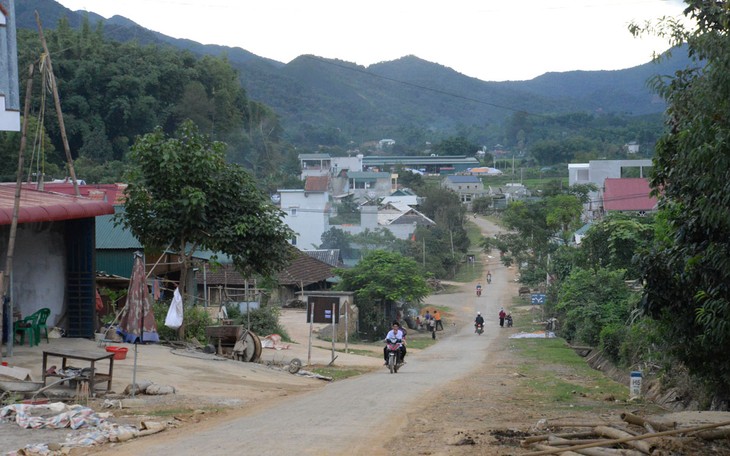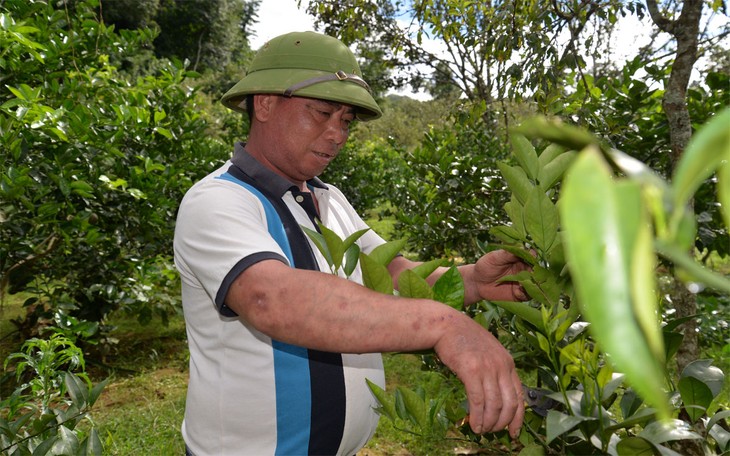(VOVWORLD) - Muong Chanh commune in Mai Son district of Son La province was the birthplace of the first revolutionary movement in Son La. 80 years ago, the Muong Chanh National Salvation Youth Team mobilized patriotic young people to fight the French colonial rulers and seize power. Under the leadership of the Communist Party of Vietnam, the local people have continued to build and develop their homeland in all aspects.
 The revolutionary Muong Chanh commune in Son La province (Photo: VOV) The revolutionary Muong Chanh commune in Son La province (Photo: VOV) |
Because of its tough terrain, Muong Chanh commune was chosen in 1943 by Son La Prison’s Party cell as a place to build a revolutionary movement.
85-year-old Lo Van Moc, a resident of Den hamlet, told VOV he still remembers very well that at that time widespread looting made the lives of the locals extremely miserable.
Moc recalled, “At that time, the hamlet mandarin was the only person to decide on raising taxes. No one cared about the people’s lives. Bullying and looting took place regularly. People used to serve as coolies. Sometimes I had to do it for 3 consecutive months. People lived a miserable life.”
In August 1945, people across the country carried out a general uprising. The militia and citizens in the Muong Chanh area overthrew the French colonial authorities and seized power.
At the beginning of 2018, Muong Chanh commune was officially recognized as a new-style rural village, whose 12 hamlets all had road access and whose households were all connected to the national electricity grid.
Last year the commune’s per capita income was nearly 1,900 USD. The poverty rate in line with new criteria was below 3%.
 The poverty rate in Muong Chanh is now below 3% thanks to many efficient economic models. (Photo: VOV) The poverty rate in Muong Chanh is now below 3% thanks to many efficient economic models. (Photo: VOV) |
Muong Chanh now has seven cooperatives and agricultural production chains that create stable outlets for farmers.
Lo Manh Quyet, Director of the Quyet Chi Cooperative, said, “We have jointly established this cooperative with a focus on growing longans, mangos, and coffee. Coop members have been taught advanced farming techniques which have boosted their incomes.”
Muong Chanh has 960 households with approximately 4,400 people, most of them ethnic Thai.
Cam Van Nhat, Chairman of the commune’s People's Committee, said Muong Chanh will continue to improve in the 19 criteria of new rural development and hopes to fulfill 15 enhanced new rural criteria by 2025. Their goal is to plant higher-quality crops and fruit trees to boost the annual per capita income to 2,300 USD.
Nhat said, “The commune will continue to invest in the system of canals and field access roads to give local farmers sufficient water for irrigation and make transportation of produce easier.”
Muong Chanh commune has changed since the revolutionary days. Today it is clean and beautiful, its village, wet rice fields, and immense green coffee fields conveniently connected by paved roads.